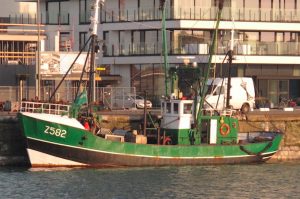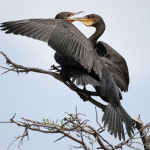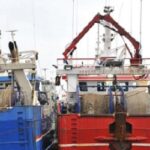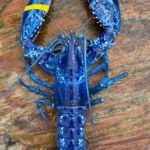Daily Archives: November 20, 2024
Bam! Scientists study wind farm construction noise impacts on lobsters… by making big noises
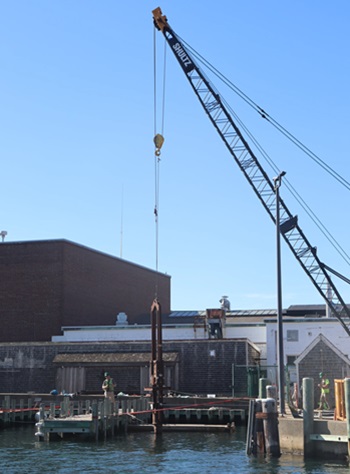 Thirteen feet below the surface of Woods Hole harbor, a lobster shelters under a plastic shield in a wire cage. An experiment is happening: every seven seconds on the dock above, a pile driver pounds a long, steel post deeper into the muddy harbor bottom nearby. The experiment happening here at this dock is designed to replicate, at small scale, the pile driving necessary to construct an offshore wind farm. The goal is to understand how a variety of marine creatures, not only lobsters, but other fish-market-friendly species like scallops, flounder, black sea bass, and squid respond to the noisy, intensive work of building an offshore wind farm. It’s something fishers and regulators are especially interested in. Already, the WHOI team’s earlier studies have shown that squid, which detect sound through vibration, responded dramatically to pile-driving noise — at least, at first. But it’s a different story for scallops, one of the highest value fisheries in the U.S. As soon as scallops were exposed to pile driving noise, they clammed up. Photos, more, >>CLICK TO READ<< 07:59
Thirteen feet below the surface of Woods Hole harbor, a lobster shelters under a plastic shield in a wire cage. An experiment is happening: every seven seconds on the dock above, a pile driver pounds a long, steel post deeper into the muddy harbor bottom nearby. The experiment happening here at this dock is designed to replicate, at small scale, the pile driving necessary to construct an offshore wind farm. The goal is to understand how a variety of marine creatures, not only lobsters, but other fish-market-friendly species like scallops, flounder, black sea bass, and squid respond to the noisy, intensive work of building an offshore wind farm. It’s something fishers and regulators are especially interested in. Already, the WHOI team’s earlier studies have shown that squid, which detect sound through vibration, responded dramatically to pile-driving noise — at least, at first. But it’s a different story for scallops, one of the highest value fisheries in the U.S. As soon as scallops were exposed to pile driving noise, they clammed up. Photos, more, >>CLICK TO READ<< 07:59
Athearn Marine Agency Boat of the Week: 52′ Steel Day Scalloper, Cummins NT-855 MI
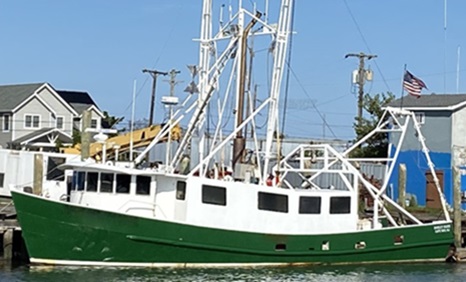 To review specifications, information, with 36 photos’,>click here< To see all the boats in this series, >click here<. 06:28
To review specifications, information, with 36 photos’,>click here< To see all the boats in this series, >click here<. 06:28

































